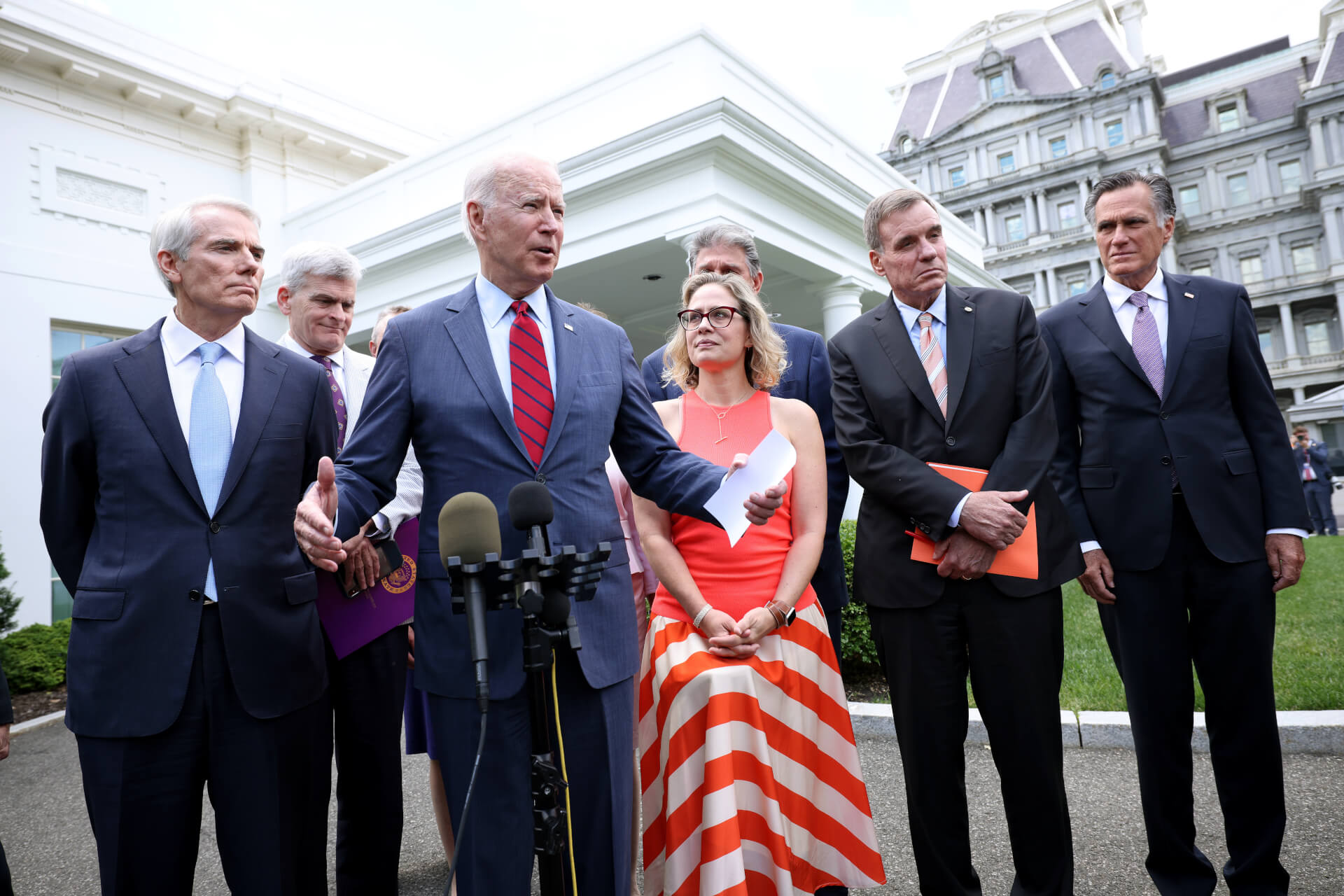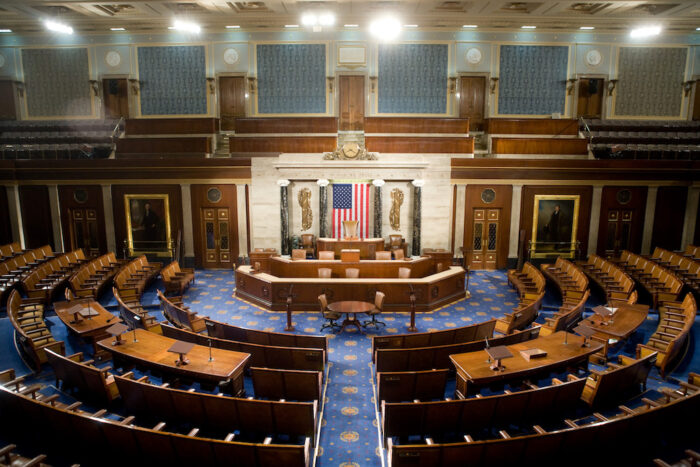Hogan Touts Role as Biden and Bipartisan Senators Clinch $1.2T Infrastructure Deal

The White House and a bipartisan group of U.S. senators said Thursday they’ve struck a deal on the outlines of a $1.2 trillion infrastructure package, marking a breakthrough on federal dollars for road and bridge projects after weeks of negotiations—but with significant hurdles still ahead.
President Biden stood with the 10 senators involved in those talks, led by Arizona Democrat Kyrsten Sinema and Ohio Republican Rob Portman, as they announced the agreement to reporters outside the White House. Biden heralded that legislative framework as the result of trust and compromise between himself and those lawmakers.
“None of us got all that we wanted. I didn’t get all that I wanted,” Biden said. “But this reminds me of the days we used to get an awful lot done up in the United States Congress.”
Nearly instantly after news of the deal was announced, Maryland Gov. Lawrence J. Hogan’s office and his An America United political action committee issued statements highlighting what they said was the governor’s role in the bipartisan agreement, including an infrastructure summit he hosted in Annapolis.
“When we convened in Annapolis this April, the conventional wisdom said that a bipartisan infrastructure bill was dead, but we did not give up,” Hogan (R) said in the statement. “Now, much of what is in this framework came directly out of our discussions. There is still more work to be done, and I am ready to do whatever I can to help get this agreement across the finish line.”
Twenty-one senators met at the White House on Thursday to forge final details of the bipartisan agreement; five of them took part in the summit in Annapolis, according to a list of attendees released at the time.
Hogan also highlighted the National Governors Association’s focus on infrastructure during his tenure as chair, his invitation to a February meeting of bipartisan governors and mayors at the White House and his testimony at a U.S. Senate hearing.
The announcement of the deal is a critical step, but the arrival of an actual bill on Biden’s desk remains in the distance. Progressive Democrats are adamant that it be accompanied by a second piece of legislation containing underwriting “human infrastructure” that Republicans, including Hogan, have opposed.
The size of the roads-and-bridges infrastructure package is also considerably smaller than the $2.3 trillion, wide-ranging proposal that Biden initially proposed.
But as he was championing Thursday’s bipartisan infrastructure agreement, Biden said congressional Democrats will be moving “in tandem” to advance the human services proposals boosting public funding for care-giving, child care, education, and other social policies that he has described as critical to the modern U.S. economy.
He said those aspects are “inextricably intertwined,” and cautioned that he will not sign the bipartisan bill if the other policies aren’t also sent for his signature.
House Speaker Nancy Pelosi (D-Calif.) said earlier Thursday that the U.S. House will not take action on the Senate’s bipartisan bill until the Senate has taken up both proposals.
The second portion will require Democrats to again use a process called reconciliation, which will allow them to pass legislation without any votes from Republicans in the evenly divided Senate. Both chambers also will have to agree on a budget resolution.
“Make sure you understand this: that when people say, ‘Well, I’m not going to vote for this unless I see that,’ there ain’t gonna be no bipartisan bill, unless we are going to have the reconciliation bill,” Pelosi said.
An outline of the new bipartisan agreement released by the White House says it would spend $1.2 trillion over eight years, with $579 billion from new spending.
The White House fact sheet listed some details of the federal dollars that would be repurposed, but not precise figures.
Among the potential funding sources included were unused unemployment relief funds; unused money from last year’s COVID-19 relief bills; and public-private partnerships. The White House document also mentioned, but did not offer additional details on, potential state and local investments in broadband infrastructure, and allowing states to sell or purchase unused toll credits.
Biden said the bipartisan agreement would make “significant down payments” on overdue federal spending in a number of areas, including the largest investment in public transit funding in U.S. history and the most money for rail projects since Amtrak was created.
It also would include $15 billion for electric vehicles and charging stations, money to improve water storage in the drought-challenged West, and $47 billion for “resilience” programs — which Sen. Bill Cassidy (R-La.) praised as critical for coastal states dealing with climate-change challenges.
It would not increase the federal tax on gasoline, or charge a new fee on electric vehicles that don’t pay the traditional gas tax, he noted.
After negotiators took weeks to agree on the financial scale of a bill and on the definition of what gets to be called infrastructure, senators involved in those discussions heralded the ability to reach a deal as much as its contents.
“We’ve agreed on the price tag, the scope, and how to pay for it,” said Sen. Susan Collins (R-Maine.) “It was not easy to get agreement on all three, but it was essential. It was essential to show the American people that the Senate can function, that we can work in a bipartisan way.”
Sinema said the agreement “shows that when a group of people who are committed with shared values to solving the problems and challenges our country faces, we can use bipartisanship to solve these challenges.”
“It meets the needs of folks who live from Virginia out to Arizona,” said Sinema, who with Portman flanked Biden at the announcement on the White House driveway. “It invests in green energy and climate, recognizing the changing nature of our country and our future.”
Portman praised the package for eliminating “non-infrastructure items,” not relying on new taxes, and for “a commitment from Republicans and Democrats alike that we’re going to get this across the finish line.”
Danielle E. Gaines contributed to this report.




 Creative Commons Attribution
Creative Commons Attribution